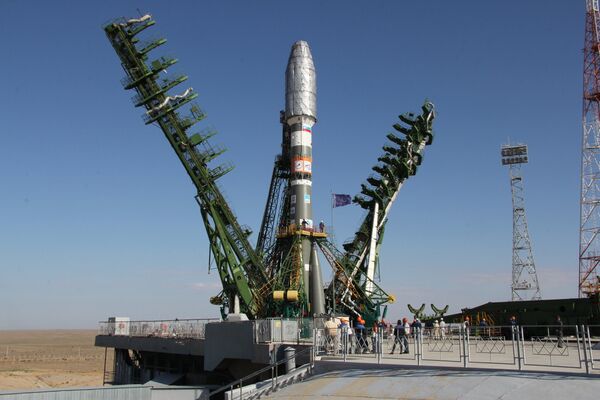GLASGOW, July 8 (RIA Novosti), Mark Hirst – Scotland’s first ever space satellite will be launched today aboard a Russian Soyuz rocket that will blast off from the historic Baikonur cosmodrome.
“A lot of the team are aware of the great history of that [Baikonur] launch site,” Robin Sampson of Clyde Space told RIA Novosti.
“It has a great atmosphere and is clearly a place steeped in space exploration history and we were very much in awe of the launch site there," he added.
UKube-1, built by Glasgow Company Clyde Space, is a “cubesat”, a miniature lightweight satellite with a payload of just three litres.
The launch will take place from the same site where Sputnik 1 and Yuri Gagarin took off, a legacy that has not gone unnoticed by the team behind the Scottish satellite.
“There is a healthy dose of nervousness and excitement at Clyde Space, probably more excited than nervous,” Sampson said. “We have performed extensive checks and tests. We’re now just looking forward to the launch.”
Blast off is expected at 15:58 UTC, and once deployed in space the satellite will conduct a yearlong mission trialling a number of new and potentially ground-breaking experiments.
“There are a number of innovative payloads on there that will push the technology envelope a little bit,” Sampson told RIA Novosti “There are some new experiments being trialed, one of which is a random number generator that will use radiation events to create true random numbers.
“It is almost impossible for a computer to generate a random number but using the space environment we can generate true random numbers from radiation,” Sampson added.
“These genuinely random numbers can then be used to securely encrypt communications,” Sampson said.
Although the mission will last 12 months the satellite will remain in orbit for at least another 15 years during which ground based scientists will carry out a range of additional experiments and tests.
As well as the UKube-1 the Soyuz will also launch eight other satellites from the Baikonur launch site.


